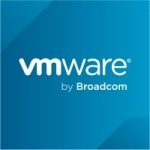The solution is primarily used for monitoring the Oracle Database and extra data.
The peer format tuning is very useful for our clients. If they want to check the monitoring for peer formats and SQL cyber tuning, et cetera, they can. In traction sites also, if they want to check it out. If they have a hardware problem, they get some notification for any hardware error. You can configure between notification for mail and confirmation for mail to send to the customer. If there is a problem, for example, some memory problem, they sent an email. And they can check the monitoring on the cluster side. If they see if there is a problem and they have any action, they give can provide an action plan. The monitoring tool is great.
The solution is reliable.
There are enough features, however, they could add an SQL flag. They have no MongoDB or other databases. It would be ideal if they offered plugins for those.
The initial setup is a bit complex.
In general, the product is complex. They need to simplify it and make it lighter.
The performance can be a bit slow.
I've been using this solution for a long time. it's been about 15 years now.
The solution offers a good amount of stability and reliability. It's good enough.
The initial setup is quite complex. It is not exactly simple. In terms of difficulty, I would rate it a four out of five.
The reason it is not easy to install is that you must install the database and the process of that. They also have no HA. The HA architecture is very hard to install for an Enterprise Platform product.
I would rate the solution an eight out of ten, even though it is a bit complex and really would be better if it was lighter and simpler.












